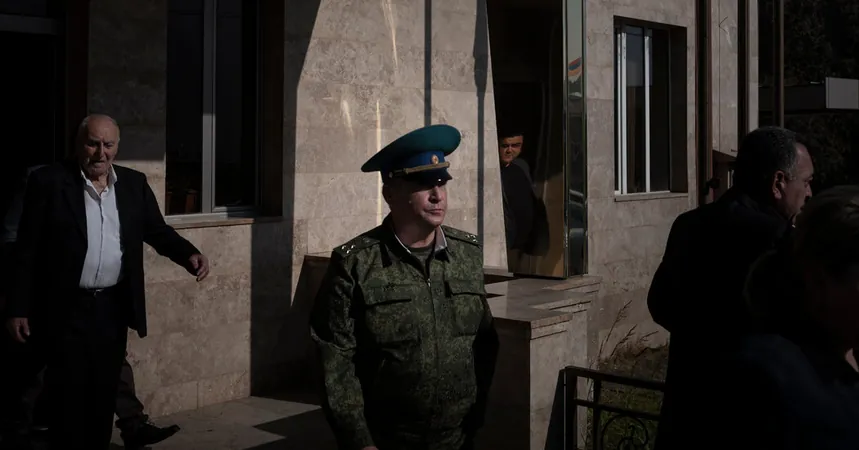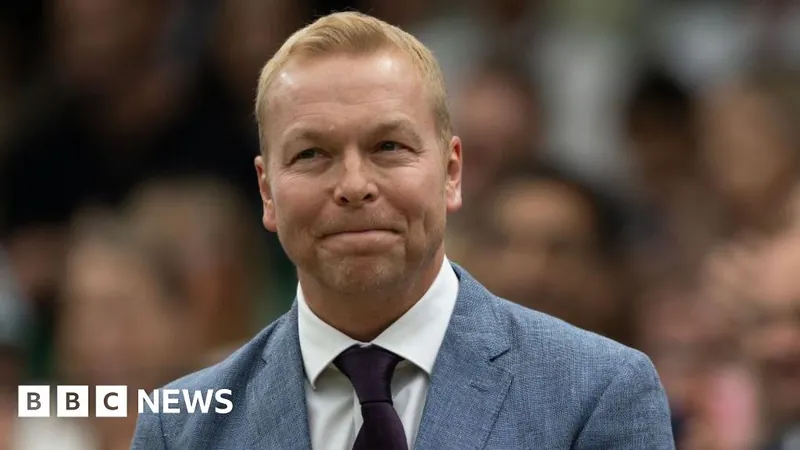
Russia and Iran: Tension Brews Over Influence in the Caucasus Region
2024-11-12
Author: Ming
In the complex and geopolitically charged Caucasus region, Russia and Iran, traditionally seen as partners, are increasingly stepping into the ring as contenders for power and influence. This shift signals a significant change in alliances and poses a challenge to Western countries grappling with their response.
The backdrop is set near the Iran-Armenia border, a strategic 30-mile stretch that serves as a critical link in a rapidly changing geopolitical landscape. As tensions rise, both Russia and Iran are maneuvering to secure advantageous trade routes, leaving Western nations in an unexpected position that might force them to reassess long-held beliefs about their alliances.
Iran’s ambassador in Armenia, Mehdi Sobhani, recently provided a glimpse into this shifting dynamic. He emphasized that while Iran and Russia have some coinciding interests, they are not genuine allies and highlighted the complexity of their relationship, which often leads to conflicting goals in the Caucasus.
The heart of the intrigue lies in Armenia, which has historically relied on Russia for protection. However, as Azerbaijan continues to strengthen its ties with Israel—a nation heavily at odds with Iran—Armenia has turned to Tehran for vital support. As the nation braces for potential conflict with Azerbaijan, currently hosting the pivotal UN climate conference, the stakes are high.
The diminishing Russian influence in the region has not gone unnoticed. After the war between Armenia and Azerbaijan in 2020, which resulted in a significant loss for Armenia, Russian military support waned following its invasion of Ukraine, further complicating the security landscape for its southern ally. With Moscow increasingly preoccupied, Armenia is contemplating deeper relations with Iran, now perceived as a more reliable guarantor of its sovereignty.
Interestingly, Western countries, some of which are at odds with Iran, find their interests aligning with those of Tehran in regard to stability in the Caucasus and a reduction in Russian dominance. As both Armenia and Azerbaijan prepare for possible escalations—building military fortifications and increasing troop readiness—the delicate balance of power is under strain.
Experts are voicing concerns over the potential ramifications of a Trump presidency, particularly regarding U.S. relations with Iran. Some in Armenia fear that heightened pressure on Tehran could backfire, making it even more difficult for the country to assist Armenia against an aggressive Azerbaijan.
Maps of the region show key transport routes that are becoming points of contention. The hope for economic growth through secure corridors is at odds with the geopolitical aspirations of Azerbaijan and Russia, who eye the same pathways with intentions that exclude Armenian oversight.
Recent events in the area, including Iran’s establishment of a diplomatic presence in Kapan and ongoing talks regarding military assistance, highlight the shifting landscape where Armenia is beginning to view Iran as a cornerstone of its security framework.
As the Caucasus region stands at this crossroads, local leaders and inhabitants express growing mistrust towards traditional relationships. For many, the historical bond with Russia is tainted by recent neglect, while Iran’s endeavors are looked upon with cautious optimism—especially as regions like Syunik Province face increasing threats of aggression.
In this turbulent environment, the loyalty of local populations is being tested. Many now find themselves caught in a web of complex national interests and shifting allegiances—a precarious position in which they fear that any misstep could lead to catastrophic consequences.
As this geopolitical drama unfolds, the world watches closely, understanding that the outcomes not only affect the countries involved but could reshape broader regional dynamics between Europe, Asia, and the West at large. Will Iran emerge as the unlikely ally Armenia needs? Or will Russia manage to reclaim its historical role as the region's dominant power? Only time will tell.


 Brasil (PT)
Brasil (PT)
 Canada (EN)
Canada (EN)
 Chile (ES)
Chile (ES)
 España (ES)
España (ES)
 France (FR)
France (FR)
 Hong Kong (EN)
Hong Kong (EN)
 Italia (IT)
Italia (IT)
 日本 (JA)
日本 (JA)
 Magyarország (HU)
Magyarország (HU)
 Norge (NO)
Norge (NO)
 Polska (PL)
Polska (PL)
 Schweiz (DE)
Schweiz (DE)
 Singapore (EN)
Singapore (EN)
 Sverige (SV)
Sverige (SV)
 Suomi (FI)
Suomi (FI)
 Türkiye (TR)
Türkiye (TR)